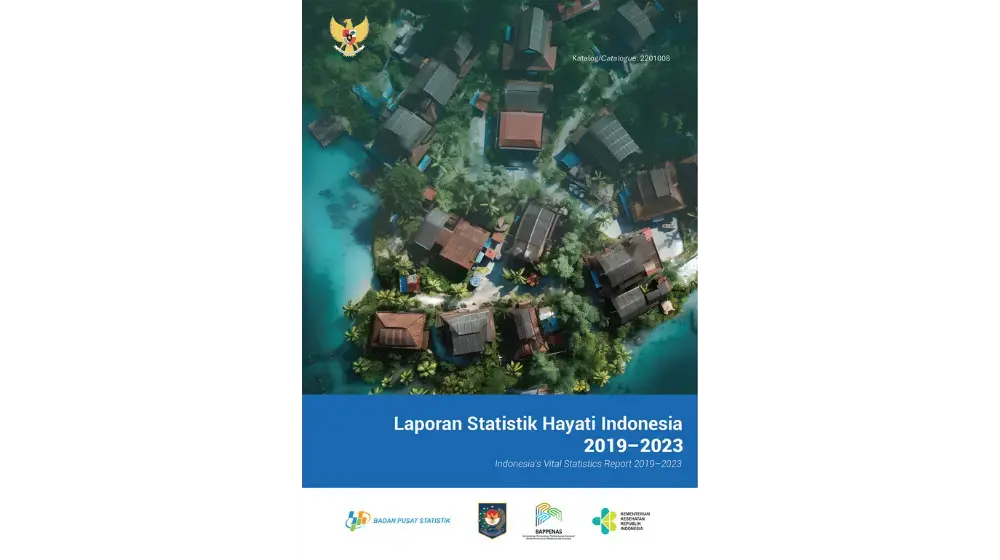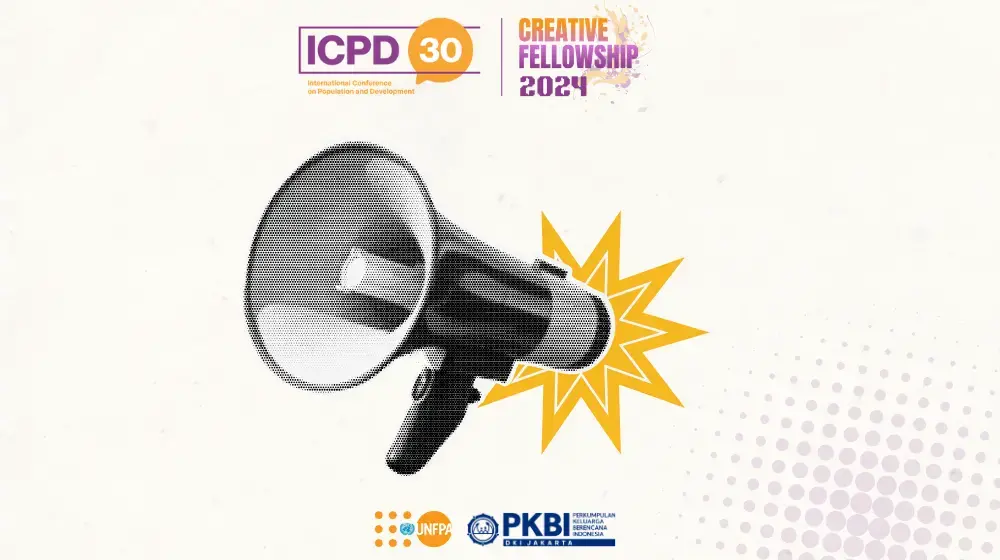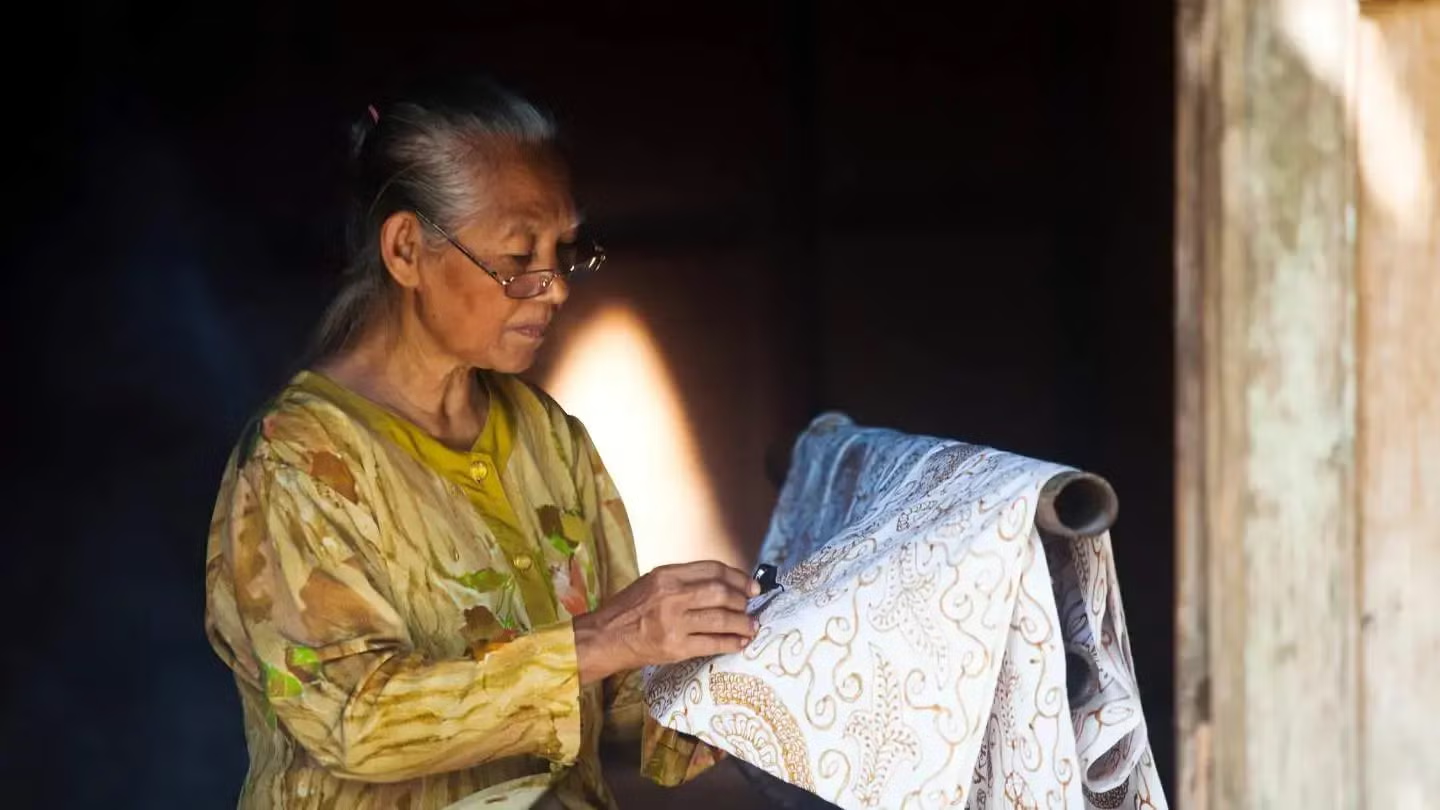Yogyakarta, 10-11 July 2013: UNFPA commemorates World Population Day (WPD) on 11 July every year to raise awareness about different population issues. The theme for WPD 2013 was Adolescent Pregnancy. A national seminar entitled “Adolescent pregnancy: expanding choices and opportunities for young women”, was held in Yogyakarta on 11 July 2013.

The event was organized by UNFPA in Indonesia, in conjunction with the Government of Yogyakarta, the National Population and Family Planning Board (BKKBN), the Indonesia Family Planning Association (PKBI), the Yogyakarta arm of the National Committee of Indonesian Youth (KNPI) and the Yogyakarta Youth Forum. The Governor of Yogyakarta, HE Sri Sultan Hamengku Buwono X, officially opened the seminar, which was attended by more than 100 participants, including government officials, NGOs, and young people.
In his statement for WPD 2013, UNFPA Executive Director Dr. Babatunde Osotimehin said: “Adolescent pregnancy is not just a health issue, it is a development issue. It is deeply rooted in poverty, gender inequality, violence, child and forced marriage, power imbalances between adolescent girls and their male partners, lack of education, and the failure of systems and institutions to protect their rights.”
“The consequence of adolescent pregnancy is lost potential”, said Mr. Jose Ferraris, UNFPA Representative, during the WPD seminar in Yogyakarta. “When young women are forced away from education as a result of adolescent pregnancy, that pathway leads to constrained life options. As a result, they will not be able to make the most of the opportunities that education brings, and will not be able to contribute to the development of their communities and their own empowerment.”
In a study commissioned by UNFPA, Dr. Iwu Dwisetyani Utomo from the Australian National University found that adolescent pregnancy is a growing phenomenon in Indonesian communities. Sexual and Reproductive Health (SRH) is still considered a sensitive topic, and adolescents’ access to SRH information and services are limited. Prevailing social stigma and discrimination also impedes access to SRH services and raises significant rights concerns for young women.

There are about 65 million young people aged 10-24 years in Indonesia, representing about 28% of the total population. According to the Indonesian Youth and Adolescent Reproductive Health Survey (IYARHS) conducted in 2007, the rate of reported premarital sex increased among girls from 1% in 2003 to 1.3% in 2007. Among boys, the rate climbed from 5% to 6% in the same period. According to the Greater Jakarta Transition to Adulthood Survey (GJTAS) conducted by the Australian National University in 2010, 14% of males and 7% of females currently dating were having sex with their boyfriend/girlfriend.
Several data sources indicate that young people only have limited knowledge about SRH issues. Only half of young people understand that one time unsafe sexual intercourse may result with a pregnancy. According to Dr. Slamet Riyadi Yuwono, Special Advisor to the Minister of Health, only 54% of young people understand that using condoms can prevent the spread of HIV. The low levels of knowledge about SRH issues and lack of access to reproductive health services increases the likelihood of adolescent pregnancy, which are, in most instances, unwanted. According to the Guttmacher Institute (2008), abortions among girls below 19 years of age accounts for 10% of terminations at a service delivery point.
Dr. Sarsanto W. Sarwono, Chairperson of the Indonesian Planned Parenthood Association (PKBI), pointed out that the lack access to education about reproductive health results in many young women experiencing unwanted pregnancy, abortion, and forced marriage. It was noted that adolescent pregancy is also a factor in rights violations against girls and young women. There are reports of domestic violence against against women and girls who become preganant; and pregnant students are expelled from schools as a result of their pregancy. Dr Sarsanto suggested that structural intervention in needed by amending the minimum age of marriage in Law No. 1 of 1974 from 16 to 18 years of age.
The participation of young people, especially girls and young women, is necessary to address the issue of adolescent pregnancy. Dr. Fasli Jalal, Chairperson of BKKBN stated, “It is necessary to provide young people with youth friendly services. It is also necessary to involved them as tutors for their peers on adolescent reproductive issues”.
Girls’ education is the best solution for prevention of adolescent pregnancy. Mr. Douglas Broderick, UN Resident Coordinator in Indonesia, highlighted that it is necessary to educate young girls because educated girls are more likely to delay marriage, pursue higher education, earn higher incomes and take steps to protect their health. Education can also enable leadership and participation in development.
Prevention of adolescent pregnancy needs a multi-dimensional, structural and cultural approach with the involvement of all stakeholders, including government, community, family, and young people themselves. HE Sri Sultan Hamengku Buwono X indicated that adolescent pregnancy is sometimes rooted to a culture where poor parents want their daughters marry as early as possible in order to alleviate economic burdens upon the family. His Excellency said it is necessary to change that culture in order to prevent adolescent pregnancy, and pointed out that pregnant girls should not be prevented from attending school.
 The WPD seminar also included a launch of an Adolescent Sexual and Reproductive Health Social Franchising Model. Speakers included Gusti Pembayun, a daughter of the Governor, David Valentine of Population Services International (PSI) in Myanmar, Margaretha Sitanggang of UNFPA Indonesia. There were also three panelists: Dr. Rachmad Santika of Menko Kesra, Dr. Nova Novriska, and Visa, a Yogyakarta youth representative. The seminar supported the establishment of a social franchising model of ASRH services in Yogyakarta.
The WPD seminar also included a launch of an Adolescent Sexual and Reproductive Health Social Franchising Model. Speakers included Gusti Pembayun, a daughter of the Governor, David Valentine of Population Services International (PSI) in Myanmar, Margaretha Sitanggang of UNFPA Indonesia. There were also three panelists: Dr. Rachmad Santika of Menko Kesra, Dr. Nova Novriska, and Visa, a Yogyakarta youth representative. The seminar supported the establishment of a social franchising model of ASRH services in Yogyakarta.
 Two other events were also held on 10 July 2013 as part of the WPD commemorations. First, a media training workshop was conducted to discuss the findings of Dr. Iwu Dwisetyani Utomo’s research and highlight the sensitivities involved in reporting about adolescent pregnancy. The speakers noted that journalists are key actors in nationwide advocacy efforts to promote public awareness and foster the development of rights-based, gender-sensitive policies to build youth’s potential for development and address adolescent pregnancy.
Two other events were also held on 10 July 2013 as part of the WPD commemorations. First, a media training workshop was conducted to discuss the findings of Dr. Iwu Dwisetyani Utomo’s research and highlight the sensitivities involved in reporting about adolescent pregnancy. The speakers noted that journalists are key actors in nationwide advocacy efforts to promote public awareness and foster the development of rights-based, gender-sensitive policies to build youth’s potential for development and address adolescent pregnancy.
 Secondly, 132 young people from a number of universities and youth communities in Yogyakarta attended the “Youth Blast” event that focused on the empowerment of young women. During the Youth Blast, Yogyakarta young people developed pledges on six issues related to the needs to protect and empower young women. The pledges were then read before the Governor of Yogyakarta during the WPD seminar the following day.***
Secondly, 132 young people from a number of universities and youth communities in Yogyakarta attended the “Youth Blast” event that focused on the empowerment of young women. During the Youth Blast, Yogyakarta young people developed pledges on six issues related to the needs to protect and empower young women. The pledges were then read before the Governor of Yogyakarta during the WPD seminar the following day.***
Tags: World Population Day




